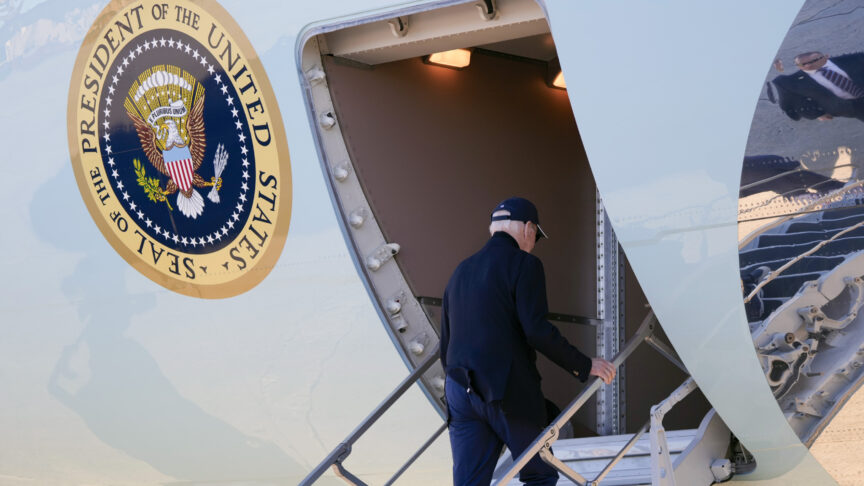Why America is facing off against the International Criminal Court
The US long ago took umbrage at the – unlikely – prospect that the ICC could prosecute Americans. The consequences of this stance are now revealing themselves.
Under US law, the government can impose sanctions on any country, organisation, or person deemed to pose an “unusual and extraordinary threat” to US national security or foreign policy. In the past, the United States has imposed sanctions in connection with terrorism and proliferation of weapons of mass destruction, and on countries including Iran, North Korea, and Syria. On 2 September this year, secretary of state Mike Pompeo marked a new departure in US policy by announcing sanctions on two senior officials of a treaty-based international organisation of which most major US allies are members, the International Criminal Court (ICC). The move will strike most Europeans as a blatant attack on the international rule of law, but it is also the culmination of an evolving confrontation between the US and the ICC that stretches back to the organisation’s founding.
The ICC was set up by the Rome Statute in 1998, with a brief to prosecute those responsible for the most serious international crimes – war crimes, crimes against humanity, and genocide. European countries were among the court’s strongest advocates, seeing it as a step towards a world where no one has impunity for mass atrocities. But the court is a treaty-based body, and many of the world’s most powerful states remain outside – including the US, Russia, and China. The tension between the vision of justice embodied by the ICC and the realities of international power politics has been present from the start and has been particularly marked in the court’s fluctuating and turbulent relationship with the US.
Under the Rome Statute, the ICC has jurisdiction to prosecute crimes committed by nationals of member states, but also crimes committed on the territory of member states, even if those responsible are citizens of a country that is not a member of the court. The US fought hard against this provision in the negotiations leading to the ICC’s founding, fearing that it could open US citizens to prosecution, but it lost the argument. The US regards the prosecution of its citizens before an international body without US consent as a violation of its sovereignty. Supporters of the ICC argue that if states can prosecute foreigners for war crimes committed on their territory in their own courts, they have the authority to transfer that power to an international court such as the ICC.
It would be very hard for the ICC to develop a viable case against a US citizen in the face of US non-cooperation
The early years of the court coincided with George W Bush’s presidency, and he took a number of steps to limit any potential action against US citizens. The US persuaded the United Nations Security Council to pass a series of exemptions for peacekeeping forces, preventing soldiers from non-ICC member countries from being investigated or prosecuted (though it stopped seeking exemptions after the Abu Ghraib prison scandal was revealed in 2004). Bush also launched a campaign of seeking bilateral immunity agreements with other countries and formally revoked the US signature of the Rome Statute (under Bill Clinton, the US had signed but not ratified the treaty, meaning that the US was not bound by it but was obliged not to take actions that would defeat its object and purpose). The Obama administration engaged more with the ICC but did not take any steps to ratify its statute.
For its part, the ICC also seemed in its early years to be trying to avoid any confrontation with great powers as it sought to establish itself as a fledgling international body. The first prosecutor, Luis Moreno Ocampo, moved with striking caution in opening investigations where great power interests were involved. Afghanistan joined the ICC in 2003, giving the court jurisdiction over any crimes occurring there after that date, and Ocampo opened a preliminary examination of the situation in Afghanistan in 2006. But, despite the persistent violence in the country, the prosecutor’s office did not request permission to move to a full investigation until 2017, under Ocampo’s successor Fatou Bensouda. Similarly long delays have marked the court’s examination of Colombia (again, a sensitive country for the US) and Georgia (where Russia was directly involved). The court’s restraint in these cases contrasted with the speed at which it moved in some African cases, contributing to a sense that the ICC was unduly focused on Africa.
More strikingly, after Bensouda requested permission to open an investigation in Afghanistan, the Court’s pre-trial chamber initially turned the request down in 2019, arguing it would not be “in the interests of justice” to proceed. Investigations without the support of the countries involved can be difficult, and Afghanistan as well as the US would have resisted cooperation with the court. But the chamber’s move was widely criticised as compromising judicial independence to avoid a confrontation with the US, and it was overturned by the ICC’s appeals chamber this year. Bensouda has said her investigation is looking at possible crimes committed by the Taliban, Afghan forces, and US forces, including the abuse of detainees held as part of the US “war on terror”. Pompeo said after the investigation was approved that it was “a truly breathtaking action by an unaccountable political institution masquerading as a legal body”. In June, Trump issued an executive order allowing sanctions against the ICC. Last week he named Bensouda and the head of the jurisdiction division, Phakiso Mochochoko, as targets.
In practice, the chances that the ICC will actually prosecute any US citizen are minimal, since it would be very hard to develop a viable case in the face of US non-cooperation, and even more unlikely that the court would ever gain custody over any American it sought to charge. Nevertheless, the Trump administration, in keeping with its hyper-aggressive approach to multilateral organisations, has seized the opportunity to strike a potentially sweeping blow against the court. The US action should also be understood as a response to the court’s current examination of Israeli actions in Palestine, an examination that the Trump administration has strongly opposed. A crucial question now is how aggressively the US will try to enforce its sanctions. As its actions against Iran among others have shown, US sanctions can be an enormously powerful tool, since targets are blocked from conducting any dollar-based transactions.
Luckily for Bensouda and Mochochoko, the ICC pays their salaries in euros. At the very least, it seems likely that the US will block Bensouda from appearing in person at the UN. But, if it wished, the US could try to shut down the court’s Afghanistan investigation as a whole by going after organisations and companies with which it does business. It is certain that Europe and other member countries would prefer to avoid a pitched battle with the US over the ICC, but equally certain that they would feel obliged to defend the court if Trump’s administration tries to put it out of action.
The European Council on Foreign Relations does not take collective positions. ECFR publications only represent the views of their individual authors.


